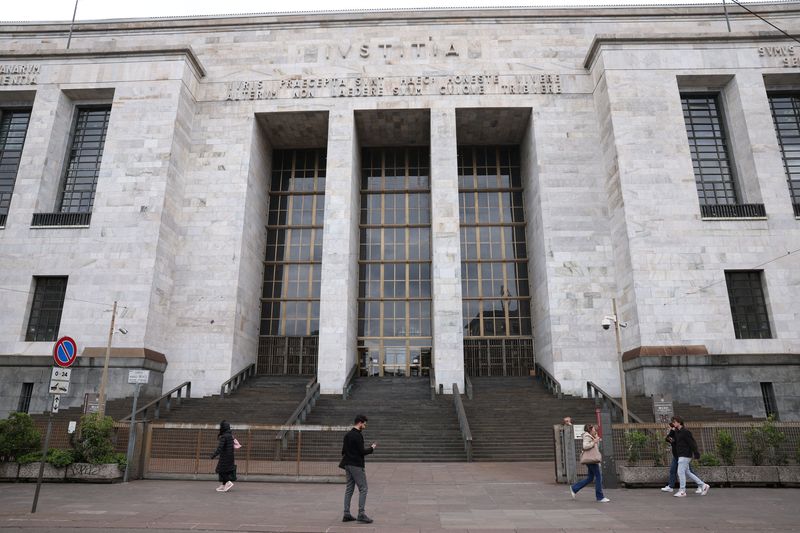Italy’s Mafia Embraces White-Collar Crime Amid Surge in Fraud Cases
In Italy, the mafia has taken a new approach, shying away from the violence that once defined their operations. The days of extortion rackets and public murders seem to be fading into history. Just 17 people were killed by the mob in Italy in 2022, a far cry from the more than 700 in 1991. Instead, mobsters are focusing on white-collar crime, which poses fewer risks and attracts less attention. According to senior Italian prosecutors, this shift has been fueled by the influx of billions of euros from post-COVID recovery funds, originally intended to revitalize the economy but now providing opportunities for financial fraud.
Prime Minister Giorgia Meloni’s government recently announced the discovery of 16 billion euros ($17 billion) worth of fraud related to home improvement schemes. Prosecutors are also investigating potential misuse of a 200-billion-euro stimulus package from the European Union. Although not all instances of fraud are linked to organized crime, prosecutors believe a significant portion could be attributed to the mafia. “It would have been foolish to think they wouldn’t take advantage of a huge influx of cash,” commented Barbara Sargenti, an official at the National Anti-Mafia and Anti-Terrorism Prosecutor’s Office.
While Sicily’s Cosa Nostra and the Camorra from Naples are well-known mafia groups, the ‘Ndrangheta, based in Calabria, has become Italy’s most powerful organized crime group. It controls much of the European cocaine trade and has spearheaded the shift toward financial crimes. The European Public Prosecutor’s Office (EPPO) raised concerns in February, noting the high volume of financial wrongdoing across the 27-nation bloc, suggesting organized crime groups were involved.
Almost one-third of EPPO’s 1,927 active cases in 2023 were centered in Italy, with estimated damages reaching 7.38 billion euros out of the total 19.3 billion across the EU. Interviews with prosecutors and police chiefs, along with an analysis of court documents, revealed the extent of mob involvement in Italy’s business world and the financial burden on the state.
Prosecutors explained that these crimes often depend on the cooperation of entrepreneurs eager to avoid taxes. Tax evasion has long been a problem in Italy, costing the government approximately 83 billion euros in 2021. “In Italy, there is no social stigma for those who issue false invoices or evade taxes,” said Alessandra Dolci, head of Milan’s anti-mafia prosecution team. “Social views on economic crimes are very different to those regarding drug trafficking.”
For the mafia, engaging in financial crime is far less risky than traditional activities like drug trafficking. The penalties are also lighter. Selling 50 grams of cocaine could result in up to 20 years in jail, while issuing bogus invoices to gain 500 million euros in fraudulent tax credits might lead to a prison term of just 18 months to six years. This disparity makes white-collar crime an attractive option for criminal gangs.
The shift toward white-collar crime has been demonstrated in several recent cases. In February, police in Emilia Romagna arrested 108 people suspected of being linked to the ‘Ndrangheta. They were believed to have issued 4 million euros worth of fake invoices for non-existent services in shipbuilding, industrial machinery maintenance, cleaning, and car rental. The investigation is ongoing.
In Milan, magistrate Pasquale Addesso has witnessed the mafia’s metamorphosis. Since a trial in 2011 involving 120 defendants accused of traditional mafia crimes, Addesso hasn’t seen a single case of extortion. Instead, the ‘Ndrangheta has moved into the world of sub-contracting, exploiting entrepreneurs’ desire to evade taxes. They create cooperatives that offer discounted outsourcing services, then declare bankruptcy to escape debts and social welfare obligations.
This approach has significant repercussions for Italy’s economy. According to the internal revenue service, bankrupt companies owe a total of 156 billion euros in unpaid taxes and pension payments. A large portion of this is suspected fraud with possible mafia connections. However, the prosecution of white-collar crime is hampered by a lack of skilled investigators and laws that limit the time available to prosecute these offenses.
To combat the mafia’s white-collar activities, prosecutors believe more focus should be placed on insolvencies and bankruptcy laws. Yet, successive governments have struggled to enforce stricter rules around white-collar crime. Statutes of limitations range from 6 years for tax evasion to 10 years for fraudulent bankruptcy, often allowing complex investigations to run out of time before convictions can be secured.
Despite the challenges, prosecutors continue to pursue white-collar criminals. Still, the low risk and high reward of these schemes continue to attract organized crime groups, creating a lucrative business that thrives in the shadows of Italy’s economy.















































